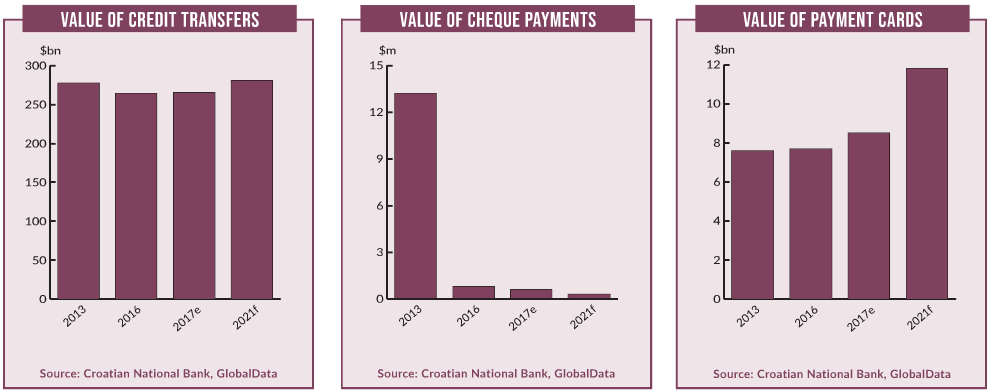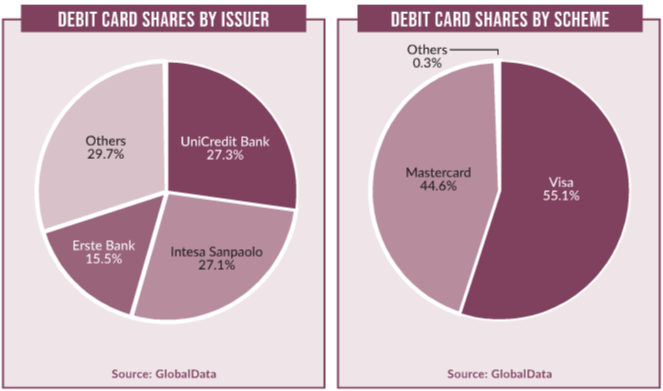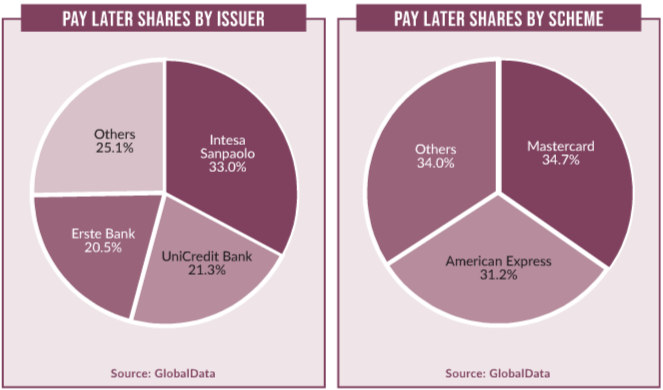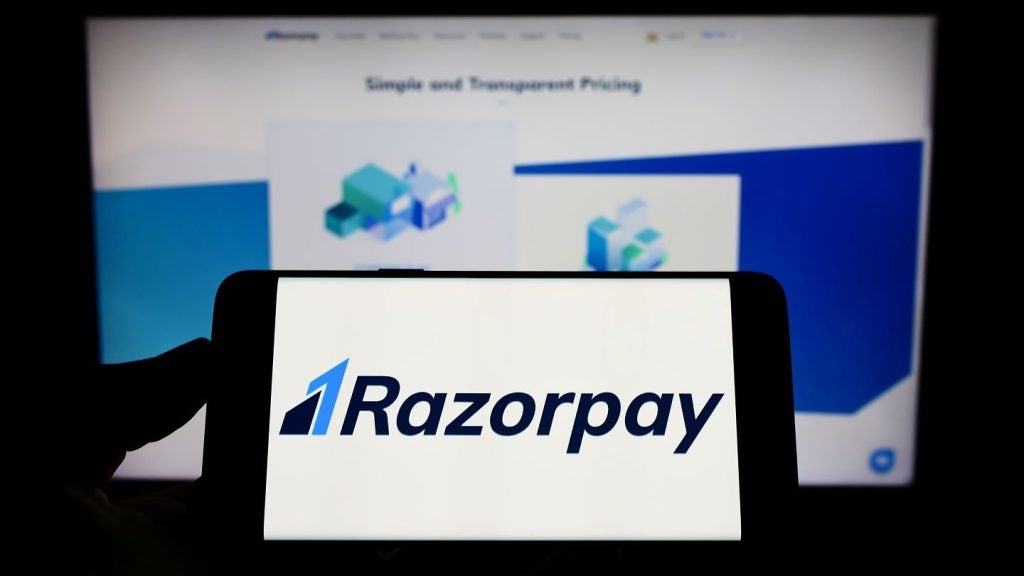Croatia’s payment card market is growing, with a penetration rate of 2.1 cards per inhabitant in 2017, mainly as a result of the country’s high banked population.
Despite this, frequency of payment card use in Croatia is one of the lowest among its peer countries, reflecting the cash-dominated nature of the Croatian economy and limited financial awareness among consumers.
However, with a recovering economy, improved banking infrastructure, lower interchange fees and wider acceptance of payment cards, the market is set to improve.
The volume of payment card transactions and frequency of use are anticipated to record robust five-year CAGRs of 6.4% and 5.3% respectively. Debit cards remain the largest card type in terms of transaction value, followed by charge and credit cards. This indicates consumers’ desire to make payments immediately using debit cards, or to repay outstanding amounts in full to avoid debt.
The emergence of contactless technology and e-commerce growth are also anticipated to support the payment card market. Rising investment in POS infrastructure and the proliferation of new payment solutions will also drive electronic payments in the country.


US Tariffs are shifting - will you react or anticipate?
Don’t let policy changes catch you off guard. Stay proactive with real-time data and expert analysis.
By GlobalData
Debit cards dominate
The high banked population and debt-averse nature of Croatian consumers have increased debit card penetration, as the cards tend to be offered free of charge with a bank account.
Banks are also adopting strategies to cross-sell debit cards by bundling them with savings accounts for different customer needs. Zagrebačka Banka, part of UniCredit Group, serves consumers aged up to 29 through its Package for the Youth, which includes a current account and a complementary contactless Maestro or Visa Electron card with a giro account.
The card also offers student loans with no processing fee. Cardholders can pay in instalments for both in-store and online payments using a Maestro card. Despite high penetration, debit card use is mostly restricted to cash withdrawals.
ATMs accounted for 69.8% of the total debit card transaction value in 2017, and the average ATM transaction value is far higher than at the POS, implying that consumers withdraw large amounts to meet liquidity requirements.
Credit cards struggle
Pay-later cards are not popular in Croatia, accounting for 19.6% of the total card transaction value in 2017.
The number of pay-later cards fell to 2014, mainly as a result of uncertain economic conditions and rising unemployment, which made consumers cautious about credit card spending.
However, there has been a rise in pay-later cards in circulation since 2015 following a recovery in domestic demand, growing employment, and rising personal disposable income. Banks offer multiple benefits and value-added services, including instalment facilities, reward points, cashback and discounts at partner retailers.
OTP Banka offers the Visa Classic Instalment credit card that allows holders to convert purchases, including online, into up to 12 monthly instalments. Holders are also entitled to special benefits and discounts at participating merchants.

E-commerce to grow
The value of e-commerce in Croatia grew from HRK1.9bn ($299.57m) in 2013 to $470.25m in 2017; it is anticipated to reach $646.98m by 2021.
Growth in the past five years was a result of rising online and mobile penetration, and increased consumer confidence in online transactions. The e-commerce market is acting as a driver of payment card market growth in Croatia.
Banks offer cards exclusively for online purchases, while the availability of alternative payment solutions such as PayPal and paysafecard for online transactions will also boost the e-commerce market.
Prepaid cards gain
The number of prepaid cards in circulation has been rising, and the trend is expected to continue over the next five years. A range of prepaid card variants are issued on the Visa and Mastercard networks.
Gift cards are popular among Croatian consumers, with most banks offering them. PBZ offers a Maestro gift card with a fund limit of $159.46, while Zagrebačka Banka offers the Visa gift card with fund values from $15.95 to $175.41.








